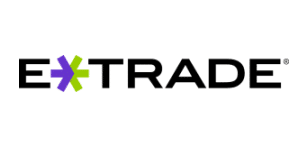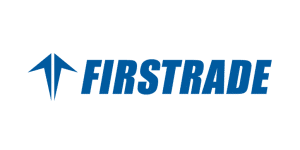In our guide, we go over the best penny stock brokers based on a variety of factors. We base our review process on a variety of factors such as customer support, fees, regulation, security, mobile app, education, and more. We then assess the performance of each provider to bring you this list.
Best Penny Stock Broker 2023
Here is a list of our top brokers for penny stock traders. We ranked them based on specific criteria. Penny stock brokers included in our list had to meet a certain threshold to be included.
- Interactive Brokers – Best Penny Stock Trading Platform Overall
- E*Trade – Best for Penny Stocks Broker Trading Tools
- Fidelity – Best Broker for Penny Stocks Research
- Charles Schwab – Good Penny Stocks Broker
- Firstrade – Limited Penny Stocks
- Lightspeed – Powerful Penny Stock Broker
- Tradestation – Zero-Commission Penny Stocks Platform
Interactive Brokers – Top Rated Penny Stocks Broker Overall
Interactive Brokers is best trading platform for
penny stocks. It was founded in 1978 and is
regulated by top-tier authorities. Their trading platform is
one of the best in the industry and is excellent for
advanced traders. Interactive Brokers offers access to 150
markets across 33 countries.
The minimum deposit is $0,
with $0.00 penny stock fees (OTCCB), and they charge a
commission of $0.0035 per share.
On top,
you get access to Stocks, ETFs, Options, Futures,
Currencies, Cryptocurrencies, US Spot Gold, Bonds,
Mutual Funds, and Hedge Funds.
| PROS | CONS |
|---|---|
| Great Trading Platform | Trader Workstation (TWS) is complex |
| Trading Tools | |
| Mobile App |
E*TRADE – Best Trading Tools
E*TRADEis known for its commission-free stock
trading. It is a well-regulated stock
broker founded in 1982.
While it is excellent for stock
trading with a flat fee of $0, they charge $6.95 for
placing penny stock orders or buying Pink Sheet
/ OTCBB stocks. If you are an active trader with at least 30
stock, ETF, and options trades per quarter, this fee is
lowered to $4.95.
They offer only limit orders for stocks trading under $1/share. Broker-assisted trades are $25.
The minimum deposit at E*TRADE is $0.
| PROS | CONS |
|---|---|
| Great Trading Platform | Fees for active penny stocks traders |
| No Minimum Deposit | |
| Research Tools and Education |
Fidelity – Best Research and Education
Much like e*Trade, Fidelity Investment offers a plethora of trading platforms available on desktop, mobile, and web-based. Fidelity charges no extra fees for trading penny stocks.
Fidelity Investments has a $0 minimum to open an account. For mutual funds, the minimum is $2,500, and a $5,000 minimum deposit is required for margin trading.
Fidelity offers excellent research and trading tools. Their trading platform and mobile app are easy-to-use with loads of trading tools at your disposal.
In addition to their trading platforms, Fidelity offers an app called Fidelity Spires, which acts as a guide for your investing and saving goals.
| PROS | CONS |
|---|---|
| $0 Commissions for Penny Stocks | Focused on retirement accounts |
| No Minimum Deposit | |
| Research and Education |
Charles Schwab – Good Penny Stock Broker
Charles Schwab is an excellent choice if you’re looking to get into penny stocks. They offer traders access to trade penny stocks through numerous exchanges. These include over-the-counter markers like OTCQX and OTCQB, as well as pink sheet stocks.
The minimum deposit at Charles Schwab is $0. Penny Stocks fees are high: $6.95 for online trades and $6.95 + $25 for broker-assisted trades.
There are no opening and maintenance fees.
Charles Schwab offers both mobile and desktop-based trading platforms. Both platforms come with a plethora of features that will meet the needs of most traders.
The trading platform, Schwab’s StreetSmart, features a nifty Wall Street-style interface which we find useful.
What makes Charles Schwab great is that they have no recurring fees or minimums if you have a main brokerage account. This includes zero commissions on stock trades.
| PROS | CONS |
|---|---|
| Mobile App | Margin rates are high |
| Great Research | |
| Fund Selection |
Firstrade – Limited Selection of Penny Stocks
Firstrade was founded in 1985, and is heaquartered in New York. They offer a great mobile app with good charting tools. Firstrade focuses on Chinese speaking clients. Their offering of penny stocks is limited, and only offer limit-orders.
Trading fees are low, and the minimum deposit is
$0.
Comparing Firstrade to other brokers on this list, we
would recommend Interactive Brokers, E*Trade or Fidelity instead.
| PROS | CONS |
|---|---|
| Founded in 1985 | Limited Penny Stocks Offers |
| Mobile App | Primarily focuses on Chinesse speaking investors |
| Education |
Lightspeed
Lightspeed is an online brokerage and a division of Lime Brokerage. Lightspeed offers an advanced trading platform at lightspeed execution speeds.
The Minimum deposit at Lightspeed $10,000.
Their trading platforms have been optimized for advanced, professional traders who actively trade.
| PROS | CONS |
|---|---|
| Advanced Trading Platform | High Minimum Deposit |
| Execution Speed | Primarily focuses on Chinesse speaking investors |
| Options Trading |
Tradestation
TradeStation is brokerage firm that is suited toward active, professional investors.
They offer two mobile apps: TS Select and TSgo. While penny stocks and other equities are zero-commission on the mobile app, there is a $10 per trade charge on the desktop platform.
The minimum deposit for TS Select app is
$2,000, while the desktop platform is
free.
Active investors trading more than 10,000 shares
pay $0.005 per share.
TradeStation makes up for this exorbitant fee by offering free access to robust data fees.
| PROS | CONS |
|---|---|
| High-quality trading platform | High Minimum Deposit |
| Execution Speed | $10 per share charge on the desktop platform |
| Research and trading tools |
What Are Penny Stocks?
Penny stocks are issued companies and trade at less than $1 a share. Penny stocks usually trade OTC (over-the-counter). In simple terms, these companies are small and unprofitable to be listed on major exchanges like NYSE or NASDAQ.
There are two primary platforms for listing penny stocks: OTCBB and pink sheets.
Generally, the stocks that are listed on pink sheet listings are from companies that are unable to meet the requirements for a listing on major exchanges.
Small companies can list their stock on pink sheets to avoid the costs and regulatory requirements that come with being listed on a major exchange.
Because they’re so cheap, it is easy to buy and trade at high volumes however, penny stocks are risky.
Pros
- Allows small companies to gain public funding
- Penny stocks offer a means to gain access to major marketplace listings
- Due to the low costs, penny stocks can offer an upside in share appreciation
Cons
- Penny stocks tend to be risky because they lack the liquid market of regular stock
- Generally, information about the company’s financial record is limited
- Penny stocks have gained a reputation for having a high probability of fraud and bankruptcy of the underlying company
Penny vs “normal” stocks
Penny stocks are generally defined by their low costs per share, while “regular” stocks are based on the company’s market capitalization. Plenty of regular stocks are blue chips that offer investors an extra layer of security in volatile markets.
Blue-chip stocks generally come from nationally recognized, financially sound, and well-established companies that have a long record of stability and reliable growth. These companies also sell widely accepted products and services.
The main difference between penny and regular stocks is that penny stocks lack liquidity. This makes them riskier than regular stocks.
Why Invest in Penny Stocks?
Investing in penny stocks is an attractive venture because of their low stock prices, which let traders buy and sell at high volumes. High-volume trading has the potential for quick gains and more profits.
But, you should keep in mind that trading in penny stocks comes with additional risks, and it is not always easy to liquidate your stocks.
Restrictions and limitations
Penny stocks are highly volatile. Investors need to be vigilant and keep a constant eye out for warning signs when exchanging in penny stock markets.
Because penny stocks are volatile, traders should be prepared to endure high losses.
One of the major limitations of trading in penny stocks is that they trade infrequently. Should traders decide to sell their stocks, they might find it challenging to find a buyer. Infrequent trade lowers the liquidity of penny stocks and increases the risk of a trade.
It is challenging to get quotations on penny stocks, and this adds to the low liquidity rate.
Another restriction or limitation when trading in penny stocks is that you might incur trade surcharges. Trade surcharges are additional fees that are added to goods and services that increase the initially quoted price.
These charges are added when a locality needs to collect fees for additional services.
Penny Stocks Scams
Before you decide to try penny stock trading, it is worth mentioning a few of the scams that you could be exposed to. Here are a few common scams and some tips on how to avoid them:
The Pump and Dump Scam
Simply put, the pump and dump scam involves promoters circulating rumors and misinformation to hype up a particular stock or security to drive up its price.
They do this by using social media platforms like Discord to send automated, anonymous messages.
Once the stock price increases, the promoters sell them at exorbitant prices.
Chop Stocks Scam
The Chop Stocks scam is when stocks are bought for pennies and sold for dollars. This lets brokers and stock promoters walk away with massive profits at the expense of inexperienced traders.
Dump and Dilute Scam
This scam is pretty straightforward. With this scam, companies constantly issue shares to take investors’ money. Generally, companies running this scam regularly reverse-split their stock.
Now that you’re familiar with common penny stock scams. Here is how you can avoid them.
The first tip is to simply ignore any suspect emails, voice messages, or phone calls. The general rule of thumb is that if you receive an unsolicited ‘cold call’ from a stock promoter, hang up immediately. It is not worth your time or energy.
The second and most important tip is to do your due diligence. If you come across an investment opportunity that seems like it is too good to be true, do your research and approach with caution.
With any trading or investment venture, it is best to do your research and try to inform yourself as best as you can. If something sounds too good to be true, it probably is.
Top Rated Penny Stock App
The best penny stock app by a land-slide is IBKR Lite by Interactive Brokers. IBKR Lite offers traders unlimited free trades in stocks. They also offer exchange-traded funds listed on the US trading exchanges.
For advanced traders wanting to expand their portfolio, IBKR offers investments in options, mutual funds, futures, and fixed incomes, to name a few. Interactive Brokers offers another trading platform, IBKR Pro. As the name implies, this app is best suited to advanced traders. IBKR Pro does not offer unlimited free trading so keep this in mind.
How to Pick A Penny Stock Trading Broker?
Here are a few things to consider when choosing a penny stock broker.
Safety
An important issue that you should consider when choosing a trading broker is the security options they offer. Generally, trading platforms offer a two-step log-in process to verify your identity.
This protects your account and your private information from hackers.
If you want additional security, we advise that you choose a broker that offers cold storage.
Regulation
Checking to see whether a trading broker is regulated is the most important thing you should consider when choosing a trading platform. We would also advise you to check out who they are regulated by. Remember, not all regulatory bodies were created equal.
Make sure that the regulatory bodies are reputable.
Regulation offers you some protection. It also gives you peace of mind that the broker you choose is legit.
Types of securities you can trade
If you're an advanced trader looking to expand your portfolio, finding a broker that deals in a robust selection of securities are essential. Securities can include equities or fixed income instruments.
Trading Platform
Whether you’re a beginner or a professional, the broker you choose should provide a robust trading platform.
The trading platform should offer a plethora of tools, research, and educational content. Some brokers offer paper trading accounts which are great for testing out a platform before committing.
If you have an active lifestyle, a broker that offers a mobile app option is something worth looking into.
Margin & Leverage
If you’re a professional, advanced trader, it is worth checking out the margin requirements. It is also worth checking out if they offer leverage and to which asset classes leverage is available.
Education and Research
The educational and research content is an essential component of any trading platform. Whether you’re a beginner or professional, this is something you should be checking for.
Education content is vital, especially for beginners. Paper trading accounts are great educational tools and allow you to get a feel for the trading platform before signing up.
Access to OTCBB and Pink Sheets
If you’re looking to get into trading penny stocks, you should check if the broker you’re considering offers access to penny stocks market exchanges. Penny stocks market exchanges include OTCBB and Pink Sheets listings.
Trading Tools
A robust selection of trading tools is a must whether you’re a beginner or an expert trader.
Trading tools are essential for developing trading strategies and keeping up to date with the market exchange.
Trading tools include margin loans, advanced order types, and research sites.
Costs – Fees & Commissions
Most trading brokers should have their fee structure readily available on their websites. As a general rule of thumb, you should aim for brokers with transparent fee structures. No one likes to be surprised by those pesky hidden costs and fees.
We advise that you do your research and choose a broker that offers you value for money.
Trade Surcharges
Trade surcharges are additional fees that are added to the cost of a transaction or the cost of stock because of additional services incurred. These are nasty little buggers and something you should look out for.
Study the broker's fee structures to make sure that they do not include trade surcharges.
FAQ
How Much Do I Need To Start Trading Penny Stocks?
Like with any other asset class, there is not a set amount that you need to start investing in penny stocks. Most trading brokers have fee structures that detail any fees you could incur while trading. These include commission fees, minimum deposit amounts, and margin requirements. We would advise that you do your research and choose a broker with a transparent fee structure to avoid hidden costs.
Can You Get Rich Trading Penny Stocks?
The short answer is no. Contrary to popular belief, making money from penny stock trades is neither quick nor easy. As with any other trade, it requires patience, research, and know-how. While you can make a profit from trading penny stocks, it is unlikely that you’ll become rich due to the high volatility and low liquidity rates. Anyone that promises you otherwise might be a scam artist.
Can I Buy Penny Stocks Without a Broker?
The easy answer is yes but we advise against it. Penny stocks are risky and with the low return rates, it is just not worth it. Buying penny stocks without a reputable broker is also an easy way to get scammed out of your hard-earned cash.
Was Apple a Penny Stock?
No, Apple was never considered a penny stock. Penny stocks are generally defined as being valued at below $5. At Apple\s historically low point, their stocks were valued at $8.
How To Find Best Penny Stocks Before They Explode?
Here are two pieces of advice we can offer. The first is when looking at penny stocks, try to find one that has already started spiking. The second piece of advice is to do your research. This is especially important if you’re a beginner. Proper research can make or break you.
Is Day Trading Good For Penny Stocks?
It is possible to day trade with penny stocks; however, we advise against it. Day trading is a risky venture and combining it with penny stocks is not a good idea. Both are highly volatile and require expertise and experience.







